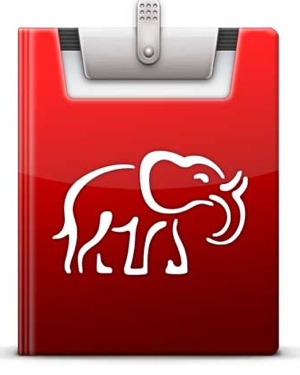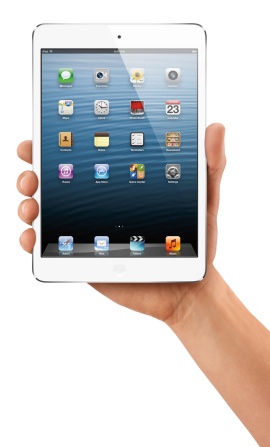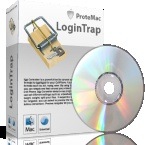*** JITc Provides for 10X Performance Improvement Over Previous
Versions ***
INTERNET WORLD EXPO, CHICAGO–July 23, 1997–Apple Computer, Inc. announced
today the availability of Mac OS Runtime for Java 1.5 (MRJ 1.5), an
implementation of Sun Microsystems Inc.’s Java virtual machine (VM) and
run-time environment for Macintosh and Mac OS-compatible systems. MRJ 1.5,
which features a set of shared libraries and other system software files,
follows on the success of Apple’s MRJ 1.0 and offers improved
functionality. With the addition of a PowerPC “just-in-time compiler”
(JITc) and numerous graphics subsystem performance enhancements, MRJ 1.5
has the capability to offer a 10x improvement in performance over previous
versions of MRJ as measured by industry standard CaffeineMarks.
Additional functionality in MRJ 1.5 includes the new MRJ Toolkit, which
allows developers to add Mac OS-specific functionality to Java
applications. MRJ Toolkit stubs are written in 100 percent Pure Java to
allow applications taking advantage of the MRJ Toolkit to automatically run
on non-Mac OS platforms without modification. By taking advantage of MRJ
Toolkit, developers can easily extend their applications to provide
excellent support for unique Mac OS advantages without sacrificing 100
percent Pure Java compatibility.
According to Apple’s Java and Components product manager Will Iverson, the
improved speed and performance of MRJ 1.5 is a significant enhancement for
developers. “MRJ 1.5 is designed to dramatically improve the performance
of computationally-intensive Java software. We want to make it easy for
our developers to write more ‘Mac-friendly’ Java software, and as the
fastest currently shipping Mac OS Java Virtual Machine available, MRJ 1.5
is an excellent solution.” Iverson added, “We are moving aggressively to
integrate Java into Apple’s platforms, with a particular focus on making
the Mac OS a great platform for running and developing Java software.”
MRJ 1.5, which is a performance release of Java Development Kit 1.0.2, is
the second phase of the previously announced three-phase Java product
rollout. Released in January 1997, MRJ 1.0 was an implementation of JDK
1.0.2 and is part of Mac OS 8. The forthcoming MRJ 2.0, with expected
availability in fall 1997, will be an implementation of JDK 1.1.x.
Mac OS Runtime for Java for Users and Developers For customers browsing the
World Wide Web, Mac OS Runtime for Java provides the ability to incorporate
interactivity and additional functionality into applications via
downloadable Java applets. Users can also run standalone Java applications
or applications written in native PowerPC or 68K code that include embedded
Java functionality. User technologies include the Apple Applet Runner, a
simple player that allows users to view Java applets and applications. (The
full source code to this viewer is included in the SDK.)
Mac OS Runtime for Java includes the high-level API as well as a
lower-level invocation API to enable developers to load Java class
libraries, create Java objects, and call Java methods in order to build
hybrid Mac OS-Java applications. Used in conjunction with currently
available Java development environments, Mac OS Runtime for Java includes
several technologies that enable developers to incorporate Java into
existing applications, as well as to use Java to create new applications.
They include: JManager, a simple high-level API that allows an existing
application to embed or host Java applets and applications; JBindery, a
utility that allows the easy conversion of a .zip/JAR/.class package into a
standard “double-clickable” application; JRI, the standard interface from
Sun for use in calling Java code from C/C++ code. JRI provides more
complete control over MRJ than does JManager. Developers can utilize as
much of JRI as they feel is appropriate, in addition to the basic
functionality of JManager.
Why Java? The introduction and popularity of Sun Microsystem’s Java as both
a programming language and a platform began in late 1995. Since then, Java
has become a standard for both distributed (applet) code and standalone
applications. Java’s unique benefits to both developers and users include
built-in threading, automatic memory management and protection, and innate
cross-platform compatibility. By allowing developers to freely integrate
Java into their applications and by providing an implementation of the Java
VM for Mac OS systems, Apple demonstrates a commitment to both Java and the
Internet. Those who can benefit from Mac OS Runtime for Java include:
Individual users browsing the World Wide Web who can use Java to get
interactivity and additional functionality provided by downloadable Java
applets; Internet developers and content authors who want to create
interactive and dynamic web pages using Java; intranet developers who want
to standardize on a suite of technologies that allow them to build custom
applications for cross-platform environments;
Component software developers who want to standardize on a suite of
technologies such as Java and JavaBeans, OpenDoc, and CORBA to create a
variety of software components that can be used on a variety of systems;
Application software developers who are considering using Java instead of
C++ and other languages.
Availability and System Requirements Mac OS Runtime for Java and the
corresponding SDK are available for no-charge download via the web at:
http://applejava.apple.com/. The minimum system configuration for Mac OS
Runtime for Java is a 68030 or faster processor and System 7.1 or later.
The RAM requirements vary depending on usage.
Apple Computer, Inc., a recognized innovator in the information industry
and leader in multimedia technologies, creates powerful solutions based on
easy-to-use personal computers, servers, peripherals, software, personal
digital assistants and Internet content. Headquartered in Cupertino,
California, Apple develops, manufactures, licenses and markets solutions,
products, technologies and services for business, education, consumer,
entertainment, scientific and engineering and government customers in more
than 140 countries.
Press Contacts:
Diane Hayward Russell Brady
Apple Computer, Inc. Apple Computer, Inc.
(408) 974-0180 (408) 974-0180
email: hayward1@apple.com email: brady2@apple.com
-30-




![[MD1] QuickTime Streaming Software Goes Open Source](https://www.mactech.com/wp-content/themes/Extra/images/post-format-thumb-text.svg)